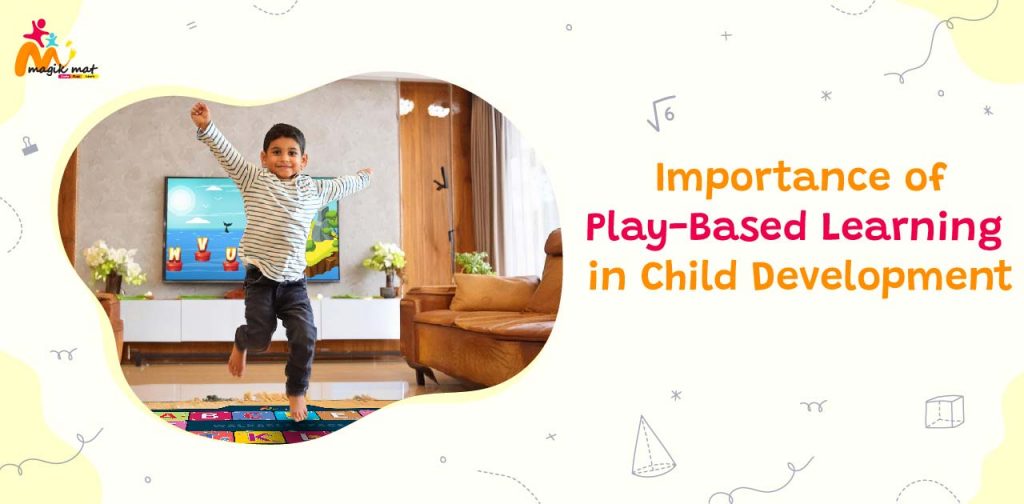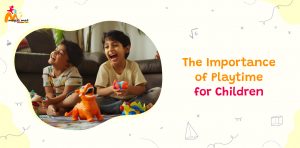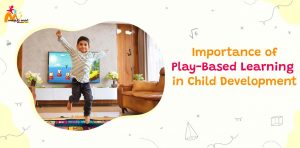Introduction
Child’s play is a crucial component of learning activities for preschoolers; it is much more than just a fun pastime. Play serves as a vital mechanism for the development of cognitive, social, and physical skills in young children. Through play, children engage with toys and various objects, exploring and interacting in ways that are both natural and age-appropriate. This process not only enriches their learning experience but also lays the foundation for lifelong learning. In this blog, we will explore the different facets of play-based learning and its pivotal role in child development. Additionally, we will highlight how educational technology products like Magik Mat can significantly enhance this learning journey.
Natural Learning Environment
Play-based learning creates a natural and engaging learning environment where children feel comfortable and motivated to explore. Unlike conventional teaching methods, the play-based concept provides the learners with opportunities to inquire into their surroundings, which in turn makes them develop a love for learning. In this way, children can make adequate choices in their lives because they get to learn through play as they try to find different solutions and consequences. This hands-on experience also improves the development of the child’s brain and assists the child in making an ordered sense of the physical environment.
For example, when children play with building blocks, they learn about shapes, sizes, and spatial relationships—fundamental concepts in mathematics. Similarly, role-playing activities, such as running a pretend grocery store, help develop social skills and an understanding of commerce. These interactive experiences make learning more enjoyable, easier for children to grasp, and more memorable compared to traditional classroom instruction.
Physical Development
Another key principle of learning that supports physical development is play-based learning. Activities such as running, jumping, and climbing encourage children to be active, thereby enhancing their gross motor skills. Fine motor skills, on the other hand, are developed through activities like drawing, cutting, and handling small objects. It is essential to promote these physical activities to support overall development and improve body coordination.
Additionally, incorporating play into learning is vital for enhancing children’s physical health. Regular physical activity through play helps prevent various diseases and is crucial for managing weight, maintaining bone health, strengthening muscles, and supporting cardiovascular health. As children engage in playful interactions, they not only enjoy themselves but also develop a lifelong habit of exercising.
Positive Attitude Towards Learning
Among the many benefits of play-based learning, one of the most significant benefits is its ability to foster positive attitudes towards learning. A child’s interest plays a crucial role in motivating them; they are more eager to learn when engaged in activities they enjoy. Play-based learning makes education enjoyable and engaging, as it incorporates activities that children find fun and exciting, thereby encouraging their active participation.
The early years are crucial for establishing a solid foundation for a child’s future academic success. Positive learning experiences during these formative years can significantly influence a child’s attitude towards school and learning. Children who have engaging and supportive early learning relationships are more likely to develop a positive outlook on education, be prepared to work diligently, overcome challenges, and maintain a lifelong passion for learning.
Creativity and imagination
Playing activities enhance creativity and imagination to come up with entirely new, out-of-the-box thinking throughout learning. This way, children can produce their own plots, situations, and resolutions to a particular situation. This creative process is mandatory for cognitive development and problem-solving skills.
For instance, creating an imaginary fort using cushions and blankets not only captures a child’s creativity but also entails decision-making and spatial reasoning. Such activities prompt the kids to use their imagination and come up with unique ideas for solving the problems they face when playing.
Magik Mat: Enhancing Play-Based Learning
Magik Mat is an educational technology toy designed to enhance play-based learning activities. It features a variety of teaching games that make studying enjoyable while helping students achieve effective learning outcomes. Covering essential curriculum areas, Magik Mat supports the mastery of concepts such as counting, addition, subtraction, and the alphabet. The mat can be connected to a screen, allowing children to engage in educational games through activities like jumping and other movements.
Using Magik Mat for Play-Based Learning
Magik Mat is an excellent Edutech product designed to foster a love for learning in children. It provides interactive experiences beyond traditional book learning. For example, children can participate in counting games by jumping on the correct sequence of numbers. This activity enhances their numeric skills while also promoting motor skill development and coordination. Similarly, games focused on alphabet recognition make learning letters enjoyable, boosting both language skills and memory. The mat’s engaging and responsive features create an immersive learning environment, capturing children’s attention and encouraging active participation, ensuring a tailored educational experience.
Conclusion
The concept of learning through play is highly effective in fostering various aspects of child development, including cognitive, physical, and social-emotional skills. Play-based learning supports language and motor development by creating a natural and engaging environment. It nurtures essential skills, a positive attitude, creativity, and imagination. Interactive Edutech products like Magik Mat enhance this approach by incorporating physical activity into game-based learning, making the learning process enjoyable for children. As they engage in interactive activities, children strengthen their problem-solving abilities and social interactions, paving the way for well-rounded development. By fostering a love for learning from an early age, Magik Mat lays the groundwork for future academic success and personal growth.





